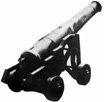
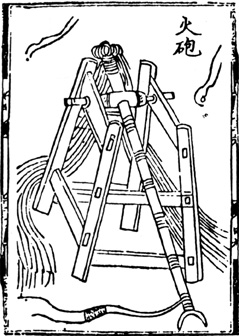 Catapult used for launching exploding boxes of gunpowder (Song Dynasty)
Catapult used for launching exploding boxes of gunpowder (Song Dynasty)
What did 15th century Europe know about China? Very little. The only source of information on the huge Cathay kingdom on the other side of the world was that of the Travels of Marco Polo. This book was first known in Portugal in the first half of the 15th century. It was written in Latin and it is believed that it was brought by King João I's son Pedro. In 1502 the book was translated into Portuguese and printed in Lisbon. It is now known as the extremely rare Valentim Fernandes edition.
In Portugal there was a growing interest for that strange, exotic and wealthy country full of mysteries. After India in 1498, the Portuguese ships had a vast and warm ocean ahead. After Malacca there was the Pacific Ocean and China.
On 13th of February, 1508, King Manuel briefed Diogo Lopes de Sequeira (who was about to set off for Malacca) on the 'Almeirim Rule' from which I shall quote the following:
"You will ask of the Chinese, where and how far they come from, how often they go to Malacca, where they do business, what goods they are trading. You will try to know the design of their ships, if they go back in the same year they arrive, if they have administrators and houses in Malacca or elsewhere. You will try to find out whether they are rich merchants, strong or weak fighters, if they have weapons or artillery, how they dress, if they are big. You will ask whether they are Christian or pagan, if their country is vast, if they have more than one king, if Moors or any other believers other than they live among them. You will also find out what they believe in and worship, what their culture is and what their boundaries are."
Three basic ideas stand out in King Manuel's instructions. Firstly, how did the Chinese go about commerce? Secondly, how were the Chinese in terms of war? Thirdly, what was China's attitude towards religion?
On 11th of September, 1509, Diogo Lopes de Sequeira arrived in Malacca and met four Chinese junks. According to Fernão Lopes de Castanheda, "the Portuguese and Chinese got along so well that Sequeira dined with them the next day".
In 1513, Administrator Jorge Álvares left Malacca on a Malaysian junk. He came to be the first Portuguese to step on Chinese territory, more precisely on T'unmen Island which soon came to be called "the market island". Nowadays it is called Lantau Island and lies at the South of the Zhujiang or Pearl River located between Macau and Hong Kong.
Our first commercial expedition to China left Malacca in 1514 under the responsibility of Rafael Perestrelo. Also from Malacca, in May 1517, the first big Portuguese group left for China on seven boats led by Fernão Peres de Andrade. This group included the chemist Tomé Pires who had recently been appointed Portuguese Ambassador to the Court of the Son of Heaven.
This was the beginning of European penetration into the Chinese Empire.
Fernão Peres de Andrade knew his mission to perfection but was completely unaware of what he was going to meet. The Portuguese wanted a steady trading centre in the Far East but they did not know China and its thirty-five centuries of civilization and history, its customs and its sinocentric vision of the world.
Fernão Peres de Andrade reached Canton and to the surprise of its population he hoisted flags on all masts of his ships and then proceeded to fire a huge gun salute. This had never been seen nor heard in China and Andrade had thus violated all ancient codes of ethics of the country in which he had just arrived. Aware of his military superiority, he hoped, through this demonstration of Portuguese military strength, to gain respect for the Portuguese from the local population. Indeed, three years before, in the Suma Oriental, Tomé Pires had stated that "Canton is the key to the Kingdom of China".
Vasco Calvo and Cristóvão Vieira, members of Andrade's crew and witnesses to all events, wrote the following in 1524 in Letters from the Canton Captives:
"The government of Canton is one of the best in China. The king receives much revenue because it has plenty of rice and other food supplies. All national products as well as products from other kingdoms are concentrated in this city because it is a port. The king receives a lot of duties, the mandarins receive large tributes and the merchants live better than in any other Chinese region. No other Chinese region has dealings with foreigners but Canton. (...) Canton is the port of call for all China".
Vasco Calvo and Cristóvão Vieira referred to many other things about China, such as capitals, provinces, cities, walled villages, courts and legal system, river navigation and commerce, piracy and soldiers. As a result of these observations a plan for the future seizure of Canton was devised.
Fernão Peres de Andrade remained in the South China seas for nearly a year. He left Tomé Pires and his group in Canton and then left for Malacca and later for Lisbon. In 1519, Simão de Andrade, his brother, called at the Southern coast of the Empire. The rows provoked by this Portuguese group, together with the accusation made by the Malaysian people that the Portuguese had conquered their land, irritated the Chinese.
Martim Afonso de Melo left Lisbon on the 5th of April 1521 and the events with Simão de Andrade and his men were unknown to him. According to João de Barros, Melo had received the following instructions from King Manuel: "To make friends with the King of China, following the establishment as ambassador of Tomé Pires who had been taken to China by Fernão Peres de Andrade. To work hard in T'unmen port or in any other safer and more profitable place. To build a fortress where he would rule as captain and live with the people he took with him. And finally to look after the trading business".
In late August 1522, Martim Afonso de Melo's five ships (one of them being skipped by Duarte Coelho who a few years later would become a great captain in Brazil) arrived in China. Soon after arrival they engaged in a fierce fight at the mouth of the West River, one of the branches of the Pearl River Delta. As the Portuguese were defeated they were forced to leave China and postponed their settlement in Chinese territory.
I had the privilege to live in the People's Republic of China for five years and I am now attached to that country by ties which are tighter than just friendship or intellectual interest. From 1979 to 1981 at the Peking, Shanghai and Canton libraries I consulted old Chinese documents about Macau, Portugal and the Portuguese. Most of those documents have been translated and I am now preparing the publication of a Collection of Chinese Texts on Portugal and the Portuguese.
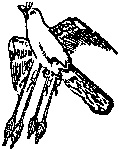 Shen huo fei ya (magic flying fire crow) - the front was made of explosives, the back was loaded with a timed incendiary device, the fuse was lit and the whole thing directed at the heads of the enemies.
Shen huo fei ya (magic flying fire crow) - the front was made of explosives, the back was loaded with a timed incendiary device, the fuse was lit and the whole thing directed at the heads of the enemies.
Below are some of those texts, History made by the Chinese:
"On the 5th Moon of the 12th Year of the reign of Zheng De (1517) tributary ships followed by other merchant fleets arrived. A 20% tax was levied on the total value of the merchandise. This tax was intended to cover the local military expenses. Duties were taken to the capital. However, the crooked merchants and Chinese villains joined the foreign merchants in smuggling goods. The Portuguese managed to infiltrate themselves into the crew of the Southeast Asian ships and then started plundering. They used to buy Chinese adventurers who were supposed to kidnap women and babies for sale. They did whatever they wanted and the locals were always in a disadvantageous position. Imperial councillor Cheng Boxian (陳伯獻 ) proposed to the Emperor that some rules should be set up to put in order the marine trade. Such rules prescribed that no tributary ships would be allowed to enter any Chinese port if they did not meet the scheduled date of arrival. However this rule was later lifted because Wu Tingju (吳廷擧), Guangdong's provincial treasurer, reported that there was a great shortage of incense for offerings. The Governor of the Province and the Imperial Customs mistakenly decided to lift the ruling on tributary ships. As a result of this, the Portuguese started their provocations. Wang Hong (汪鋐) Deputy Chief of the Central Defense, led an expedition and defeated the Portuguese. Huge sums of money were spent on the construction of war ships and manufacturing of ordnances in order to reinforce the marine defense. Without foreign ships due to the reinstatement of the above-mentioned rule, local governments were left without a good source of revenue. In view of this, local governments blamed the provincial treasurer for the serious consequences."
(Collection of Authentic Documents of the Reign of Zheng De, 1506-1522 of the Ming Dynasty, Vol. 149.)
"Soon before they arrived in China, the Portuguese had conquered Malacca. The newly-arrived offered tributes to the court and applied for official recognition of their country. Pursuant to an imperial rule, only the ambassador and a few of his servants were taken to the capital. The remaining entourage stayed in Huai Yuanyi (懷遠驛). Guests bought good Chinese citizens and built homes where they would live permanently. The Sultan of Malacca, who was in exile, sought help from the court but to no avail. Qiu Daolong (丘道隆), an imperial historian, submitted a memorandum to the Emperor where he referred to the following major points: Malacca is not only a Chinese protectorate, it is also a traditional tributary country. Its being conquered by the Portuguese was a dishonour to the protector rather than to the protectorate. He asked that the Portuguese tributes be returned. In his opinion, no gifts from the Portuguese should be accepted until they withdrew from Malacca. If they insisted in staying in Malacca, China should organize an expedition to protect Malacca. He Ao (何鰲) also an imperial historian, made the following remark: "Among the foreigners, the Portuguese were too cruel and shrewd. Their weapons were the most advanced ones. It was said that they were coming and going, and as they were engaged in commercial activities they would for sure provoke fights, killing and wounding".
("Chronicle of the Ming Dynasty", Ming Shi, Vol.158, text dated 1548).
"In the 13th Year of the reign of Zheng De, the Sultan of Malacca was expelled by the Portuguese and his land came under their rule. The Portuguese sent a thirty-person mission to Guangdong to deliver their tributes. The mission was welcomed by Wu Tingju, provincial treasurer and Deputy Chief of the Marine Defense. As they did not find the name of Portugal on the list of tributary countries, other mandarins returned the tributes to the foreigners and sent them away. However, these retreated to Nanto, Dongwan district, where they built fortresses, assaulted travellers and kidnapped young children to feed themselves. The locals complained against this violence. Following the report made by the Sultan of Malacca against the Portuguese, Qiu Daolong and He Ao, both imperial historians, advised the Emperor that the Portuguese had conquered Malacca which was one of China's protectorates. (...)
The Portuguese took the opportunity of entering China. Now all foreigners should be expelled for good. Thanks to the Emperor's favourite eunuch, Jiang Bin (江彬), the Portuguese ambassador learned the Chinese language. He then managed to become a servant to the monarch who also learned the Portuguese language by chance. Once, the Portuguese needed to solve a problem with the Foreign Affairs Bureau. While sitting, he spoke to the Minister of Rites, Liang Zhuo (梁焯) and as the latter got very annoyed he ordered the Portuguese to be whipped. Upon learning of this event the eunuch made the following comment: "The Portuguese has the privilege of passing time with His Majesty; why should he kneel when addressing a subject of the Emperor?"
("Collection of Unpublished Works, Wang Hen Memorial" (王享) Chapter III, concerning the Southeast Barbarians, Malacca, dated 1550).
The Chinese used to say that the Portuguese ate children and a lot of references can be found regarding the same subject. I would now quote João de Barros in Decade III of Ásia:
"They used to say we bought stolen boys and girls, children of honourable people and then we ate them roasted. They believed in this because we were unknown to them and throughout the East everybody feared us. I do not think we would do such a thing because we thought they and other remote countries did the same".
Let us go back to the Chinese texts:
"In the middle of the reign of Zheng De, the Portuguese entered China unexpectedly in order to present their tributes. However, these were not accepted because they did not behave in a courteous manner.
They then retreated to Nanto where they built palisades with trees and settled themselves, kidnapping and eating young children. Imperial historians, Qin Daolong and He Ao, prepared a memorandum giving an account of their crimes. Wang Hong, Deputy Chief of the Central Defense, led the troops to expel them. As the foreigners used fire-arms, Wang Hong enlisted fine swimmers who were to break into and sink their ships in order to prevent them from escaping. They were all captured and beheaded, leaving behind their copper weapons. Wang Hong asked that the seized cannons be distributed among the border towns. After that they called these weapons Fo Lang Ji (Portugal)".
(Monografia de Macau, Part I, Ying Guang Ren,1715).
"(...) This time the pirates were defeated and left behind several cannons. Our soldiers called these weapons "Portugal". Wang Hong offered the Court some of them. Our troops started using these weapons but as they did not know how to operate them they could not use them to fight the pirates".
("Ming Dynasty Chronicle", Ming Shi, Vol. 325, On Foreign Countries, 1548).
"Gu Yingxiang, Minister of Justice, said that Portugal was a toponym, the name of a country rather than a fire-arm. In the 12th year of the reign of Zheng De (1517) I was in charge of Guangdong's Central Defense.
Suddenly, two big ships arrived and cast anchor at Haui Yuanyi. They were said to be sent by the Portuguese to present their tributes. The newly-arrived had hawk-like noses and deep-set eyes and covered their heads with white towels like the Muslims. They paid their respects to Cheng Xixuan (陳西軒), Governor of the Province, who welcomed them personally at the harbour. As he realized that the Portuguese were ignorant of the Chinese customs, he ordered them to learn these customs at the Guang Xiao Temple (光孝寺, Light and Filial Piety Temple), after which they were given an audience. He wrote a memorandum to the central government whereby he asked for instructions on how to handle the matter because he could not find Portugal on the list of tributary countries. Upon approval of the court some of them were taken to the capital. It took them a year before they could present their tributes to the Emperor because he was out on a trip in the South. When Shi Zhong (世宗, 1522) took over the throne, he ordered the ambassador to be hanged and the remaining entourage was arrested and taken to Canton to be expelled. Those who stayed in Canton spent their time reading Buddhist writings. The Portuguese cannons were made of iron and had 330cm or 396cm barrels. At the bottom end of the cannon there was a hole through which the cannon was re-filled with five alternate cartridges. The cannon was covered with rose-chestnut to avoid any explosion. Each ship had four or five cannons ready to fire and four or five more hidden in the hold for surprise attacks and any emergency. These cannons opened holes on the hulls of the enemy's ships and these sank very quickly. The Portuguese were very proud of themselves, with those fearful cannons they were invincible on the seas".
("Sea Issues", Vol. 13, Fire Guns, "On Portugal" - by Hu Zhongxian (胡宗憲); dated the first half of the 16th century).
"Qiu Daolong and He Ao, imperial historians, accused the Portuguese of being too cruel and astute and of hurting the local people. In view of this they asked for the expulsion of the Portuguese. The Emperor agreed to that and ordered the hanging of the Portuguese ambassador and the expulsion of the Portuguese from Canton. Wang Hong, Deputy-Chief of the Central Defense led the troops. Our first attempt failed because the Portuguese were hiding in remote places and used fire guns. The Deputy-Chief had then to resort to divers in order to crack and sink the ships which would prevent them from fleeing. The foreign ships were ten zhang (36 metres) long and three zhang (10.8 metres) wide. The ships were powered by forty paddles and equipped with thirty four cannons and could sail even during a storm. These ships had pointed ends and flat sides which enabled them to sail very fast even though they had to go against the wind. They were manned by two hundred oarsmen. In order to protect the crew against the enemy shots, exposed areas were protected with wooden planks. If the cannons fired all at the same time the noise seemed like a thunder storm (...) Their biggest cannons would weigh around a thousand jin (500kg), the smaller some one hundred and fifty jin (75 kg) and the medium cannons would weigh 500 jin (250kg). Projectiles were iron inside and covered with lead. The biggest would weigh eight jin (4 kg). Their gunpowder was different from that of the Chinese. The best cannon had a range of one hundred zhang (360 metres) and could blast anything be it stone or wood.
Hei Ru (黑孺), Chief-Inspector of Dong Wang District, used to go aboard foreign ships to collect taxes and recognized some of his Chinese friends like Yang Shan, Dai Ming, etc. These men had been living with the Portuguese for some time and they knew how to prepare and make the gunpowder. In view of this, Wang Hong ordered the Chief-Inspector to choose some men who would get in touch with the Chinese living among the Portuguese. These men would pretend they were wine and rice merchants.
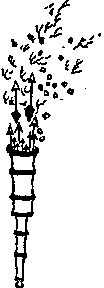
Tuhuoqiang (fire-spitter) - a bamboo tube stuffed with gunpowder and splinters which spurted out with the flames (Song Dynasty illustration).
The Chinese were bribed and arranged with the local authority officials that on the same night Hei Ru would sail a sampan to carry his subordinates, some gunpowder and a gun. This was aimed at discovering how the gunpowder and the guns were made. Once they discovered that, they would use the same technique. Then Wang Hong managed to beat the Portuguese and captured over twenty cannons of different sizes.
("References to Exotic Places in the West", Vol. 9, Yang Congjiang, 1930).
The foregoing Chinese texts give us an account of the early stages of the Portuguese penetration into China. I am not going to analyse nor correct them. I would just emphasize that the Portuguese military power, gunpowder and cannons played a very important role when our ships reached China. They were also important when we settled in Ningbo, Zhejiang Province, Quanzhou, Fujian Province and finally in Macau.
The importance of gunpowder, cannons and the Portuguese was also felt when the Ming Empire started to collapse in 1615 following the attacks by the Qing troops (the Manchus).
Father Gabriel de Matos, in a letter dated 1622 from Macau, reported that "The Chinese cannons tend to explode and very often they kill more of their own troops than those of the enemy".
Manuel Tavares Bocarro's cannon foundry in Macau operated from 1620 to 1650 to protect the city itself against the Dutch threat and helped the Ming together with Portuguese soldiers and gunners.
I would like now to make some brief comments about gunpowder and the making of firearms in China.
Usually, the Chinese say that they invented gunpowder and they even date that invention back to the Chunjiu period (Spring and Autumn Annals 770 to 476 B. C.). It was, however, the physical gunpowder which was also known to the Romans and Greeks. The black gunpowder made of sulphur, coal and ammonium nitrate, appeared in China during the Tang Dynasty (618-906). It was then used for military purposes and led to the defeat of the Tangs. The first flame catapult and fire arrows which used gunpowder on one end appeared in the next Dynasty, Song (960-1280). Also in the Song Dynasty the huojili appeared which can be considered to be the first shattering grenade with metal particles. These particles would spread around after the blast.
The huoqiang and tuhuoqiang were used in the period immediately prior to the Yuan Dynasty (Mongol). These were large bamboo pipes in which gunpowder and small projectiles were inserted. The Mongols and the Mings (Ming Dynasty: 1368 to 1644) also used the tiehuopao and huotong. These are in fact small cannons and are different from the other weapons due to the nature of their barrel: the former had cast-iron barrels and the latter bronze barrels. Nevertheless they were very primitive and unreliable. Unlike in Europe, the manufacture of fire-arms in China during the 15th and 16th centuries did not witness any significant development.
In short, then, the huoqiang, tuhuoqiang, tiehuopao and huotong were the only fire-arms the Portuguese encountered when they first arrived in the Chinese Empire in 1513.
(Address made at the International Congress on 'The Portuguese Discoveries and Renaissance Europe', in Lisbon, 23/6/83).
EDITOR'S NOTE
We decided to add two notes to this interesting and unique text by António Graça de Abreu. It should be noted that this text is rather important because Chinese documents about Portugal are very rare.
The two texts we decided to add are excerpts from a book which until very recently was considered to be the official version of the People's Republic of China of the relations with the Portuguese in the Ming Dynasty - "Ming History, Chapter on the Portuguese, Notes and Comments" by Dai Yixuan.
For the first time the expression Fu-Lang-Ji was explained as referring to the Portuguese in the early days of the contacts between the two countries.
This book also gives an account of the Chinese perspective of the Portuguese cannons and it is even more interesting because there are very few books on the subject translated into other more accessible languages.
ADDITIONAL TEXTS
Ming History
"In the reign of Zhengde, Fu-Lang-Ji, the people living next to Malacca, occupied Malacca and expelled its king."
Notes and Comments
"Fu-Lang-Ji was the name used by Turkish, Arabs and other Eastern people (Farangi in Indian, Firangi in Persian, Frangi or Afrargi in Arabic) to refer to the Europeans. The root of those expressions was "Frank" a German tribe which conquered France in the 6th century. The Muslims had been in contact with that German tribe for a long time. Under the influence of the Southeast Asian Muslims, the Chinese adopted the expression Fu-Lang-Ji to refer to the Portuguese. It is quite possible that this expression was brought into China by Malaysians. They used Fu-Lang-Ji not only to refer to the Portuguese but also their cannons".
Ming History
"Chinese officials seized some Portuguese cannons (they call them Fu-Lang-Ji) and the Deputy-Minister for Marine Affairs offered them to the Court.
In the Fall of the year 9, Deputy-Minister Way Hong submitted a report to the king: "Everytime the Portuguese bandits come, our border is damaged. The purpose of the border is surveillance and therefore the range of our artillery is behind our needs and very often we get in a difficult position. The Portuguese cannons which were offered to the Court by this humble servant have the following features: the small ones weigh less than 10kg and have a 600ft range and can be used in small fortresses by three people; the big ones weigh over 35kg and have five or six li range and can be used in big fortresses; the system is to install three cannons manned by ten people in each fortress. Small fortresses must be built in intervals of five li whilst big fortresses must be built in intervals of ten li. With this the Portuguese will not even get close. We will keep our superiority without having to fight. The Emperor was impressed and pleased and therefore agreed to the idea.
The Fu-Lang-Ji's cannons were also called Fu-Lang-Ji and appeared during these events. However, as neither the soldiers nor the officials knew how to handle the cannons the enemy was not controlled."
Notes and Comments
"Following a process of antonomasia the Fu-Lang-Ji's cannons were also called Fu-Lang-Ji. They were seized after two battles and called Fu-Lang-Ji. It is certain that this name dates back to that time but it is yet to be clarified when China got hold of those weapons. In the 'History of the reign of Wan Li', by Sheng De-Fu, it is said that 'After the reign of Hong Zhi (1445-1505), China started having Fu-Lang-Ji cannons, the country of which was called in the old times Sam Fu Qi, i. e. holiday resort for foreign countries. Canton managed to capture some ships and seize both their goods and cannons. As these were very good and their shots could reach much further than the old ones they were used at the borders'. However Sheng De-Fu goes on (vol.30) ("The Red-Haired Foreigners"): 'After the reign of Zhengtong (1436-1449) China got hold of Fu-Lang-Ji cannons, the most important magic instrument of foreign people'. In this case the writer mentioned the cannons some sixty or seventy years prior to the first reference. The first Portuguese arrived in India late in the 15th century and then went on to reach Southeast Asia early in the 16th century. It was impossible for the Chinese to get hold of the Portuguese cannons prior to their arrival".
It is obvious that Sheng De-Fu mixed the dates because he mentioned that China got hold of the cannons either after the reign of Hongzhi or after the reign of Zheng-tong.
Ying-xiang's report is more credible: "Fu-Lang-Ji is the name of a country rather than a cannon. In the year twelve of the reign of Zhengde (1517), I took over as Jia Shi, Head of the Marine Transports (...)"
"Their cannons are made of iron and are nearly two meters long and the barrel is very wide. They have a long hole through which the gunpowder is inserted. The cannons are covered with wood and iron. Each ship is equipped with four or five cannons. When a ship gets close a shot is enough to open cracks in it and let the water in. This is why the Portuguese ships sail as if they own the sea and they are unrivalled. An interpreter offered a cannon and the gunpowder secret. The cannon was tested on shore and it reached hundreds of feet. On the sea and while protecting the city it was a terrible weapon, but not so much in the battleground. Later, Minister of Defense Wang Chengzhai submitted a proposal to the emperor and over a thousand cannons were manufactured. These were distributed among three borders. They were provided with some wooden gadgets which enabled them to move upward and downward, to the right and left. Their origin was China, not Portugal".
Based on this, we could say that the Portuguese cannons arrived in China by the time the Portuguese first reached the coast. Gu. Yingxiang was born in Chang Xin, Zhejiang Province. In the reign of Hongzhi he was a mandarin scholar. In his capacity as Jia Shin in Guangdong, he defeated the 'pirates' and won three battles in just six months and we do not know whether he had the help of cannons or not. It is, however, certain that during the fight with the 'pirates' an interpreter offered him for the first time a Portuguese cannon. Gu Yinxiang was later promoted to Minister of Justice and died in year forty four of the reign of Jiajing (1565). The 'Reign of Jiajing Archives' includes his biography.
By the time the interpreter gave him the cannon it was not yet known as Fu-Lang-Ji. Even though there is no conclusive evidence, we presume that Gu Yingxiang was the first to get hold of the cannon.
The official manufacture of the cannons took place only after the death of Emperor Ming Wu Zong and a battle fought between 1521 and 1522. It was Inspector He Ru of Bai Sha, Dong Wan District, who sent a secret mission to the Portuguese ships in order to get hold of Yang Sa and Dai Ming. Only after that did the official manufacture of fire guns start. Most likely, the first Portuguese and Javanese-style cannons were made in Dong Wan. With these cannons Wang Hong defeated and expelled the Portuguese.
Also, in year three of the reign of Jiajing (1524) duplicates of Fu-Lang-Ji cannons were made in Nankin. In the eighth year of his reign, Wang Hong proposed the construction of three hundred Fu-Lang-Ji-type cannons named 'Great General'. The proposal was accepted and the cannons were distributed among all borders (please see 'Reign of Jiajing Archives'). It was then that the large scale construction of cannons in China took place. Inspector He Ru was later promoted to Shang Yuan District Magistrate.
Shang Yuan District was located in Nankin. He Ru was born in Ming Du, Hiang Xi Province and undoubtedly he played an important role in the defense of the borders.
Wang Hong actively supported the idea that borders could only be protected by means of fire guns. In year nine of the reign of Jianjing (1530), he made a petition to the Emperor concerning the provision of big and small cannons in the Northwest border fortresses. The text that appears in the 'Reign of Zhengde Archives' is a quote of that petition and features some amendments to its wording. Wang Hong considered the efficiency of the Portuguese cannons very important and stated that: 'The small ones weigh less than 10kg and reach 600ft. They can be used in small fortresses. One in each fortress should be enough. The big ones weigh over 35 kg and reach five or six li.
Three of these cannons could be provided in each larger fortress and manned by ten persons. With five li between small fortresses and ten li between large fortresses, the defense system will be so dense that the bandits will not manage to invade China. We will defeat them without having to go out and fight with them'. Emperor Ming Shizong asked the Minister of Justice to study the matter, the conclusions of which are as follows: "Fu-Lang-Ji cannons are in fact powerful. As proposed by Wang Hong, it is necessary to rebuild fortresses, select officials who will train soldiers in the handling of the cannons. Meanwhile, fortresses can avert but not stop the bandits from invading China. Weapons are powerful but their range is limited. With this in mind, the generals and officials' main task should be the construction of fortresses on the borders, training soldiers, helping the poor and cheering up the soldiers. This way we will gain the people's support and the war will be won easily'.
Wang Hong, another name for Xuan Zi, was born in Mao Yuan, An Hui Province, and took over the post of Director of the Inspection Department in the year six of the reign of Zhengde".
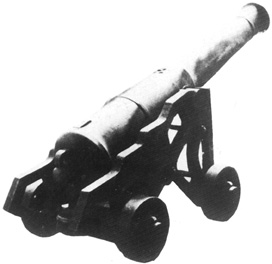
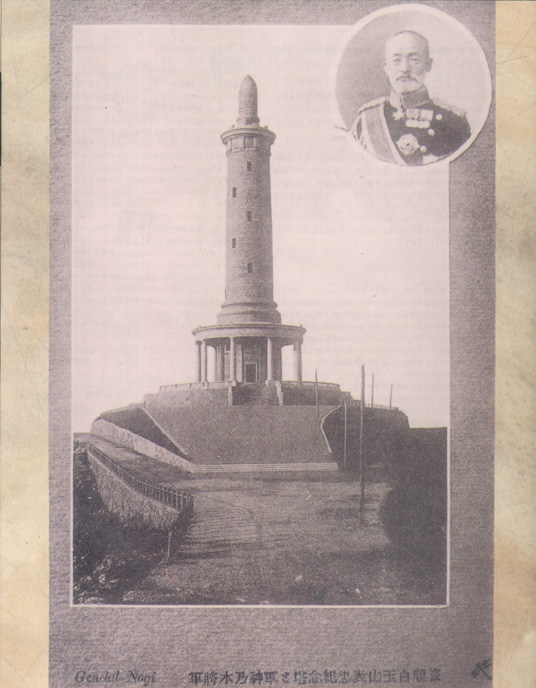
Translated from the Portuguese by José Vieira
*Lecturer at Lisbon New University, Orientalist. Lecturer of Portuguese Language for four years at Peking University's Foreign Languages Department.
start p. 32
end p.